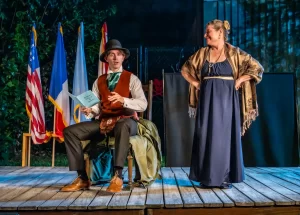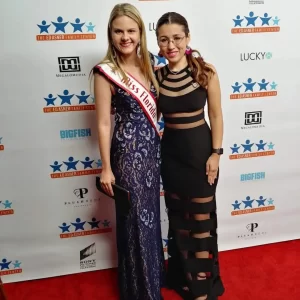
A few months ago, a friend reminded me that this August, the 100th Anniversary of the ratification of the 19th Amendment to the U.S. Constitution was coming up. This amendment, ratified on August 18th, 1920, gave American women the right to vote.

Since then, and in preparation for an activity that we, via Conexion Media Group, are working on to celebrate that historic event, I have had a chance to read numerous articles, review on-line information, and spoken to persons with extensive knowledge about this. Personally, I was shocked to learn that this effort by many very courageous women, was a decades long fight as it took nearly 100 years for it to become a reality!

For sure, the fight for women’s suffrage, in my opinion, is a great display of the resiliency of women, who bravely “fought the system”, united as best as possible even with those they disagreed with, and succeeded in this worthy endeavor to ensure that American women, just like men, deserved all the rights and responsibilities of being a citizen.

The campaign for women’s suffrage began several decades before the Civil War. During the 1820s and 30s, most states had extended the franchise to all white men, regardless of how much money or property they had.
During these times, all kinds of reform groups were proliferating across the United States in which women played prominent roles. Such groups included temperance leagues, religious movements, moral-reform societies, anti- slavery organizations, and others.

In 1848, reformers Elizabeth Cady Stanton and Lucretia Mott invited a group of abolitionist activists, mostly women, but also included some men, to gather in Seneca Falls, New York to discuss the problem of women’s rights.
Most of the delegates to this convention were in agreement that, American women were autonomous individuals who deserved their own political identities.
The delegates produced a Declaration of Sentiments that proclaimed “We hold these truths to be self-evident, that all men and women are created equal, that they are endowed by their creator with certain inalienable rights, that among these are life, liberty, and the pursuit of happiness.”

They believed that women should have a RIGHT to vote.
The movement gathered steam during the 1850s, but it lost much momentum when the Civil War started. But it was almost immediately after the Civil War ended that the 14th Amendment and the 15th Amendment to the Constitution raised familiar questions of suffrage and citizenship.
The 14th Amendment, which extended the Constitution’s protection to all citizens and the 15th Amendment, which guaranteed black men the right to vote, were ratified in 1868 and 1870 respectively.

Some women’s suffrage advocates believed that this was their chance to push lawmakers for truly universal suffrage. As a result, they refused to support the 15th Amendment and even allied with racist Southerners who argued that white women’s votes could be used to neutralize those cast by African Americans.
In 1869, a new group called the National Woman Suffrage Association was founded by Elizabeth Cady Stanton and Susan B. Anthony. They began to fight for a universal-suffrage amendment to the U.S. Constitution.
There was disagreement from other sectors who thought it was unfair to endanger black enfranchisement by tying it to the less popular campaign for female suffrage. This pro-15th-Amendment faction formed a group called the American Woman Suffrage Association and fought for the franchise on a state-by-state basis.

Eventually, the two groups came together, in 1890, to form the National American Woman Suffrage Association. Elizabeth Cady Stanton was the organization’s first president.
By then, the suffragists’ approach had changed. Instead of arguing that women deserved the same rights and responsibilities as men because women and men were “created equal,” the new generation of activists argued that women deserved the vote because they were different from men.
They could make their domesticity into a political virtue, using the franchise to create a purer, more moral “maternal commonwealth.”

This argument served many political agendas: Temperance advocates, for instance, wanted women to have the vote because they thought it would mobilize an enormous voting bloc on behalf of their cause, and many middle-class white people were swayed once again by the argument that the enfranchisement of white women would “ensure immediate and durable white supremacy, honestly attained.”
Starting in 1910, some states in the West began to extend the vote to women for the first time in almost 20 years. Idaho and Utah had given women the right to vote at the end of the 19th century.

In 1916, NAWSA president Carrie Chapman Catt unveiled a campaign that mobilized state and local suffrage organizations all over the country.
During that time, a group called the National Women’s Party founded by Alice Paul focused on more radical, militant tactics that included hunger strikes and White House pickets, aimed at winning publicity for their cause.
During World War I, the suffragists’ campaign slowed, but, the great work of women on behalf of the war effort also proved that there were just as patriotic and deserving of citizenship as men.
On August 18, 1920, the 19th Amendment to the Constitution was ratified and more than 8 million women voted for the first time in the United States on November 2, 1920!


